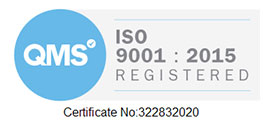Expanding and growing a business is often challenging, as managing multiple large and complex jobs becomes increasingly difficult. During 2023, we were managing up to 50 projects simultaneously, ranging from simple 11kV protection studies, up to 400kV transmission connections. We managed this ok, but it did get a bit fraught at times.
Looking ahead to 2024, we have now fully rolled out an integrated project control system, proposal system and CRM based on monday.com. This new package, is totally customizable and lets us track all the projects, individual deliverables, costs, project dependencies, quality, time and invoicing in one place.
In a wider context we see some interesting changes coming to the U.K. market and power system studies.
1) Battery storage systems continuing to be rolled out at both the transmission and distribution level, and perhaps some market changes to FFR (Dynamic Containment, Dynamic Moderation and Dynamic Regulation). We also think that this will be a year where we start to see a more general roll out of grid forming inverters.
2) EMT studies and PSCAD are expected to be a key change over this year. Both NG ESO, and ENTSO-E are sending market signals that they expect these to be used in more detail for transient studies. We think EMT studies will become a default for most Grid connections, and expect this to filter down to larger DNO connected renewable generation either this year or early 2025. Aurora therefore plan to roll out PSCAD to all of our senior engineers and increase our number of licenses.
3) An increased roll out of synchronous condensers on the network, by NG ESO, as a way of maintaining stability and SCL levels on the network as inverter based renewable generation gains increasing market share. We have a lot of in-house expertise in large synchronous machines, and AVR/Exciter modelling and tuning of PSS settings, and hope to see a significant increase in this market activity.



